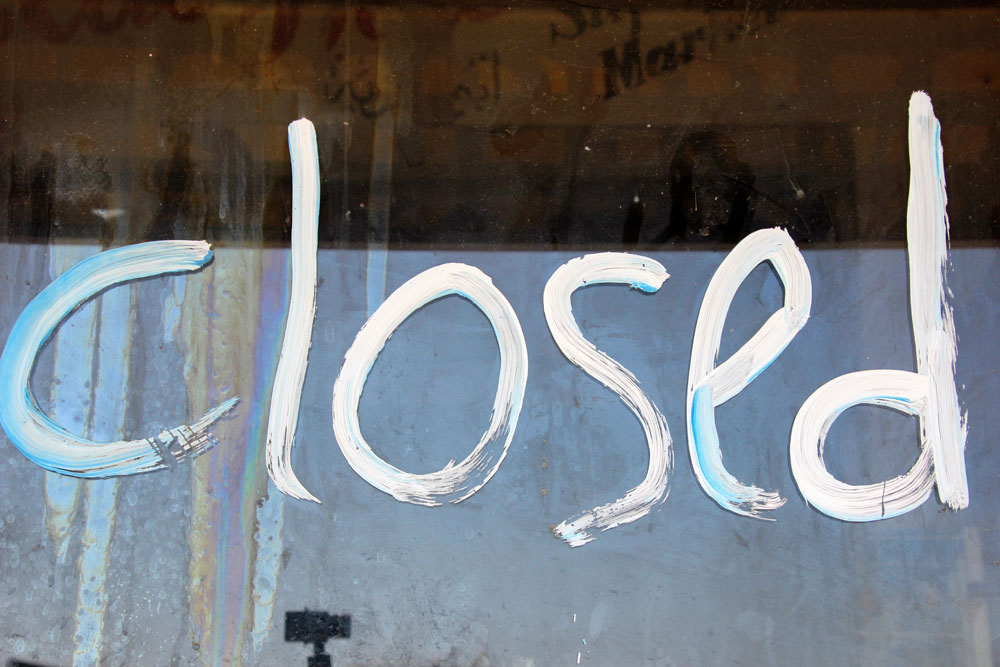
June 18, 2020; Quartz
The coronavirus pandemic has harmed business across the board, but Black, immigrant, and women-owned businesses have seen far more closures proportionately, according to federal census data.
We first covered the 41-percent drop in working Black business owners in May, but a newly released paper by University of California, Santa Cruz economist Robert Fairlie, featured in a recent article of Quartz, provides valuable details behind those numbers—as well as information about the economic impacts on women and immigrant business owners.
Fairlie, in a paper published this month by the National Bureau of Economic Research (NBER), compares US census bureau data from its monthly Current Population Survey, measuring change from February 2020 to April 2020. As a result, the data do not reflect the partial economic reopening as shelter-in-place orders in most states have expired.
As NPQ has noted before, a little under six million small business have employees and are incorporated, but many more small businesses operate as family-owned operations, typically unincorporated, with no employees. Specific numbers follow:
| February 2020 | April 2020 | Change | |
| Incorporated businesses operating | 5,817,387 | 4,681,205 | -20% |
| Unincorporated businesses operating | 7,765,488 | 5,140,050 | -34% |
| Businesses operating <15 hours/week | 1,429,816 | 1,889,105 | +32% |
| Total businesses | 15,012,692 | 11,710,360 | -22% |
All told, about 3.4 million businesses shuttered between February 2020 and April 2020. This actually understates the impact; the increase in businesses operating less than 15 hours a week clearly shows many businesses reduced operations, even when not closed fully.
Sign up for our free newsletters
Subscribe to NPQ's newsletters to have our top stories delivered directly to your inbox.
By signing up, you agree to our privacy policy and terms of use, and to receive messages from NPQ and our partners.
The impact of the business shutdowns has hardly been equitable. The data may be early, but they are stark. Some details: 20 percent of businesses owned by men shut down, compared to 25 percent for women-owned businesses. Business owned by whites had a 17 percent shutdown rate, compared to 41 percent for Black owned businesses, with Latinx-owned businesses (32 percent) and Asian American-owned businesses (26 percent) falling in between. Immigrant-owned businesses closed at twice the rate as businesses owned by native-born US citizens (36 percent versus 18 percent). Further details are below:
| February 2020 | April 2020 | Change | |
| Business ownership by sex | |||
| Female | 5,389,399 | 4,048,205 | -25% |
| Male | 9,623,293 | 7,662,156 | -20% |
| Business ownership by race | |||
| White | 10,553,415 | 8,761,531 | -17% |
| Black | 1,079,116 | 637,769 | -41% |
| Latinx | 2,070,896 | 1,412,925 | -32% |
| Asian | 888,528 | 657,896 | -26% |
| Business ownership, country of birth | |||
| US-born | 11,892,417 | 9,700,763 | -18% |
| Immigrant | 3,120,275 | 2,009,597 | -36% |
What do these numbers mean for the long haul? Clearly, the impacts are enormous. For a sense of scale, the number of business owners decreased by 730,000 during the Great Recession, a five-percent decline. Here, the scale of the reduction is more than four times as great.
One concerning aspect of the current crisis is the fragility of US small businesses as a sector—meaning that even short-term interruptions can have major repercussions. In the nonprofit world, we are regularly reminded that many nonprofits lack reserves. But guess what? So do for-profit businesses.
According to Fairlie, pre-pandemic, only “15-20 percent” of small businesses reported having “enough cash on hand to cover three months of operation” and the majority had less than one month’s cash on hand. By comparison, a study of Philadelphia nonprofits conducted in 2017 found that more than three-quarters at least had one month’s cash on hand (stated—how else?— as “over 20 percent” having less than one month’s cash on hand) and said “fewer than 40 percent” were financially strong—a number, however, that is twice as high as the comparable figure for small business.
Fairlie concludes by noting that a critical question ahead is whether programs like the Paycheck Protection Program will be adequate to enable small businesses to survive the shutdowns due to the coronavirus pandemic—or, as seems far more likely, additional supports will be needed. As Fairlie warns, permanent mass closures of small businesses in the United States could have a dramatic effect on both employee job losses and on increasing what are already record levels of income inequality.—Steve Dubb













